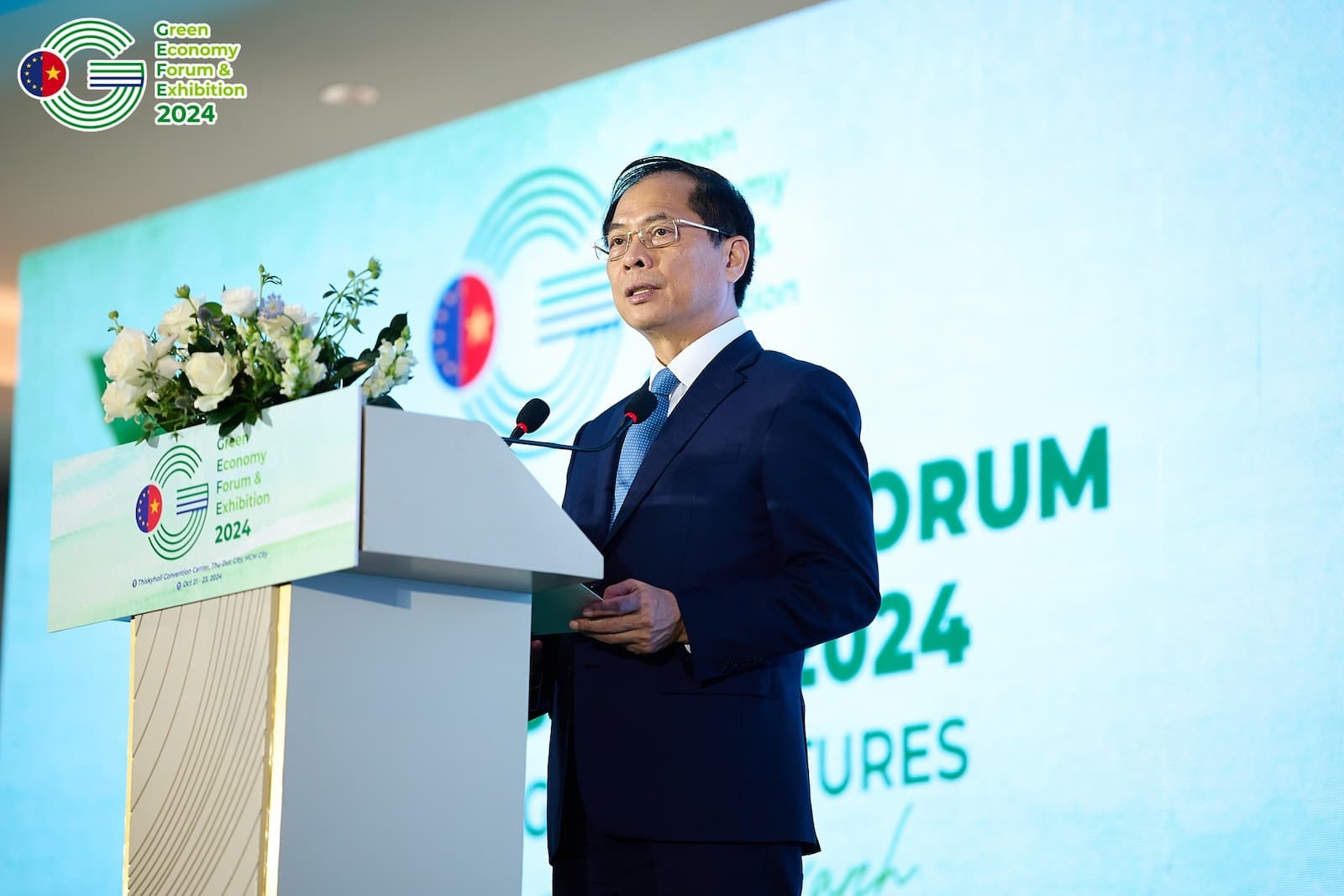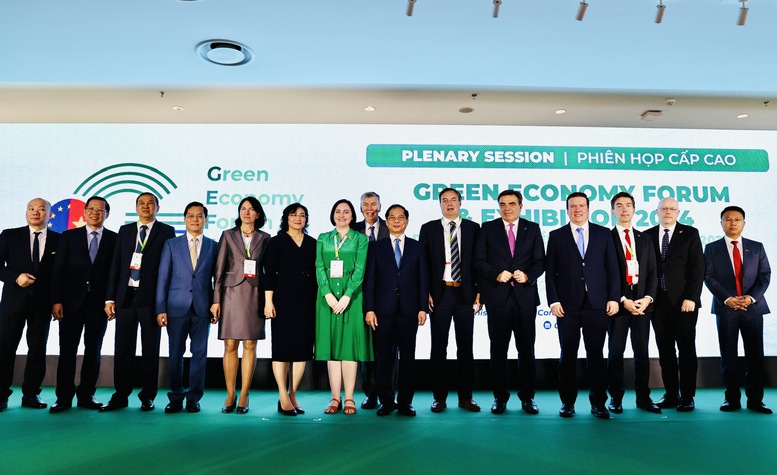The "Green Economy Forum and Exhibition" (GEFE), organized by the EuroCham Vietnam and Ministry of Industry and Trade, attracted over 200 exhibitors from various countries, featuring 13 national exhibition areas.
The forum aims to deepen green transition cooperation between Vietnam and Europe, inviting more than a hundred speakers to share insights on ten key themes, including energy efficiency and low-carbon agriculture.
Vietnam seeks more funding, technology, training

Vietnam's Deputy Prime Minister and Minister of Foreign Affairs Bui Thanh Son expressed hopes of learning from European nations about carbon markets, international integration, and green hydrogen development. He emphasized the need for continued support in funding, technology, and training.
He also called on European companies to establish research centers in Vietnam, particularly in sustainable infrastructure, digital transformation, smart agriculture, and low-carbon industries.
Bui noted that Vietnam has introduced numerous initiatives for sustainable development, including the cultivation of one million hectares of low-carbon rice and setting green growth targets. Last December, Vietnam launched a Resource Mobilization Plan for the Just Energy Transition Partnership (JETP), securing nearly $2.5 billion in official development assistance (ODA) loans for infrastructure in the Mekong Delta.
The close economic ties between Vietnam and Europe were highlighted by Alain Cany, co-chair of the organizing committee, who stated that Vietnam is a primary target for European investment, while Europe remains an important export market for Vietnam. “Only by working and committing together can we succeed in the transformation that all of us are striving for,” he said.

Deputy Prime Minister Bui Thanh Son (center) said that Vietnam is determined to build a sustainable economy. (Photo: Viet Nam Government Portal)
Cost-effectiveness, regulation of green transition in focus
As Vietnam’s green transition is still in its early stages, issues of cost-effectiveness and regulatory development are under scrutiny. The Norwegian pavilion featured eight companies, including UMOE Advanced Composites (UAC), which provides solutions for the containment, storage, and transportation of hydrogen, biogas, and natural gas. Sales Manager Yngve Schrøder Tufteland emphasized the importance of choosing cost-effective technologies in Vietnam's early green transition.
Norway’s Ambassador to Vietnam, Hilde Solbakken, said that Vietnam’s challenges are not unique, noting that clarity and predictability are key to attracting investment, which often comes with regulatory frameworks.
The Dutch pavilion hosted a series of workshops discussing digital technologies in green logistics, water resource management, and saline agriculture. Daniel Coenraad, Consul General of the Netherlands in Ho Chi Minh City, noted that both countries face challenges from climate change and have already collaborated in agriculture and transport, with opportunities for joint development in carbon reduction and green finance.
The Swiss pavilion, comprising eight companies, focused on sustainable infrastructure and manufacturing, showcasing four ongoing projects in Vietnam, including regional bio-trade initiatives and sustainable tourism. Thomas Gass, Switzerland's Ambassador to Vietnam, stressed the importance of creating a clear and equitable competitive environment in addressing issues of environmental impact, carbon emissions, and waste management.
According to Reccessary.com
